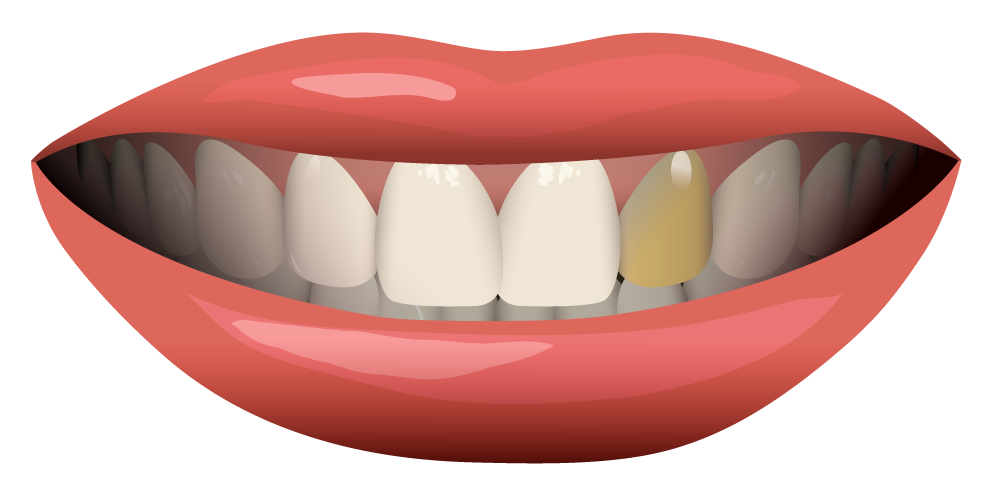No one wants spotty, stained, or tarnished teeth to stand in the way of a beaming smile. Many turn to teeth-whitening for help. But for someone who has had dental work such as crowns, it’s not always that easy. People eager to have their smiles back often ask, “Can dental crowns be whitened?”
Dental crowns are required when decay has progressed to the point where it weakens teeth. This can cause pulpitis, a painful infection that reaches deep into the roots of a tooth. One of the ways dentists may ease this discomfort is to perform a root canal. A root canal procedure involves removing infected tissue from damaged teeth and then filling the hole left behind. Then, a dental crown is used to cover the injured tooth.
Why Can’t Crowns Be Whitened?
Crowns are made from a variety of materials, including gold, stainless steel, ceramic, resin-based materials, and porcelain. While each of these are great for protecting injured teeth, they pose problems for whitening. Aside from gold and stainless steel, the other materials are made to look as much like natural teeth as possible. But unfortunately, teeth-whitening chemicals do not bond to crowns in the same way as they do to real teeth. The result is crowns and teeth that do not match.
Teeth can become discolored over time because of extrinsic (outside) and intrinsic (inside) causes. Extrinsic stains result from things like smoking, coffee, tea, wine, or berries. Intrinsic staining is usually out of a person’s control: Aging, heredity, and certain medical conditions or prescription drugs. Extrinsic stains can usually be lightened or removed by whitening, but intrinsic stains are sometimes permanent.
Unfortunately, people wondering if dental crowns can be whitened will be disappointed to learn that just like intrinsic stains, they cannot. Once they are placed inside the mouth—whether the teeth get stained or are whitened—the crown’s color will stay the same.
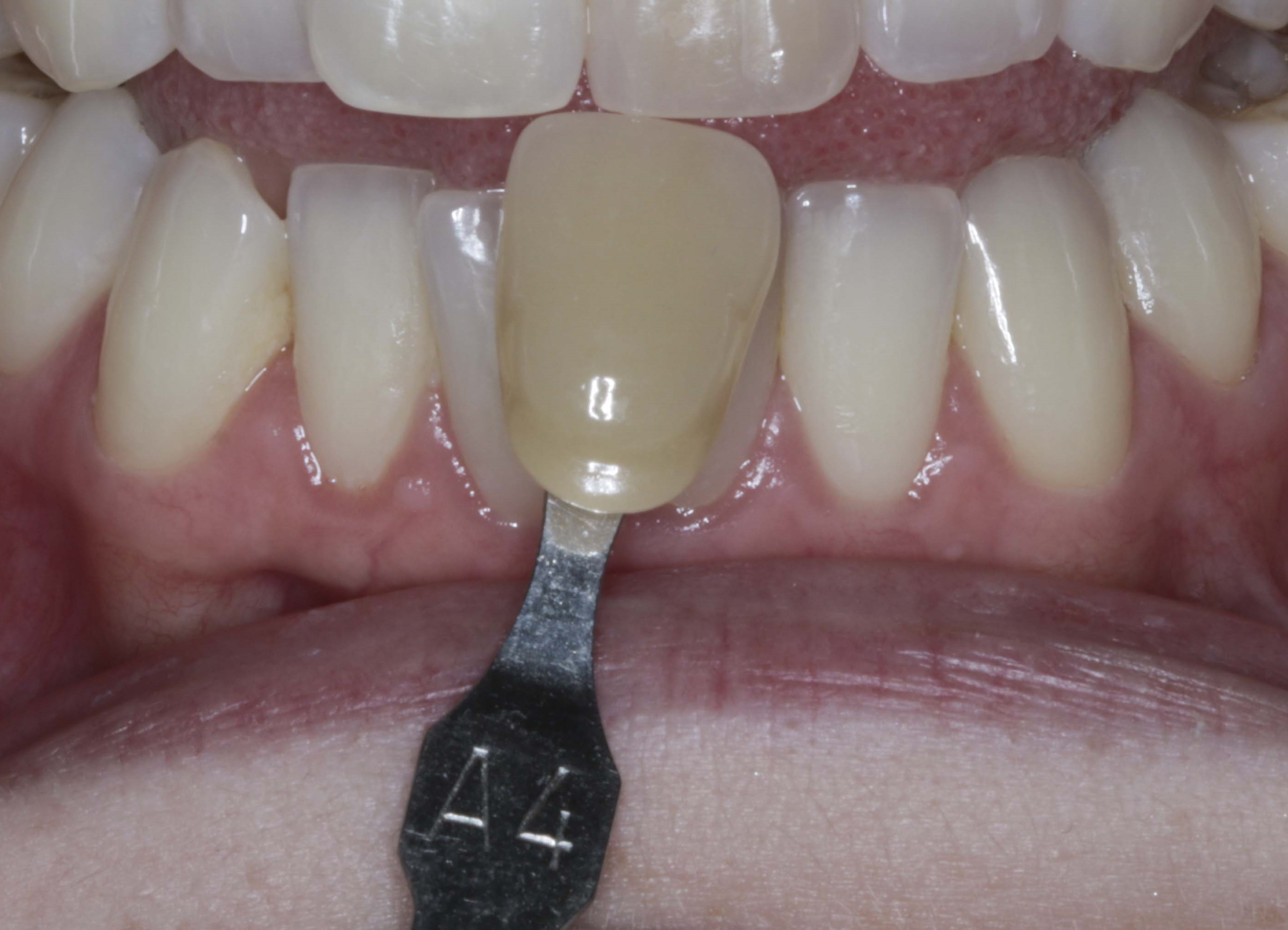
What About Professional Whitening vs. At-Home Whitening?
If a crown was placed before a patient’s teeth were stained, chances are it is a lot whiter than its neighboring teeth. As long as the staining isn’t caused by an intrinsic condition, whitening the rest of the teeth can help even out their smile.
There are several choices for teeth-whitening. Some are do-it-yourself, at-home treatments, and others are professional treatments provided by a dentist. When deciding on whether to use at-home or professional whitening, it is important for patients to remember that although both processes may work for natural teeth, they will not work on crowns or other dental work.
Here is a simple breakdown on the differences between at-home and professional whitening.
At-Home Whitening
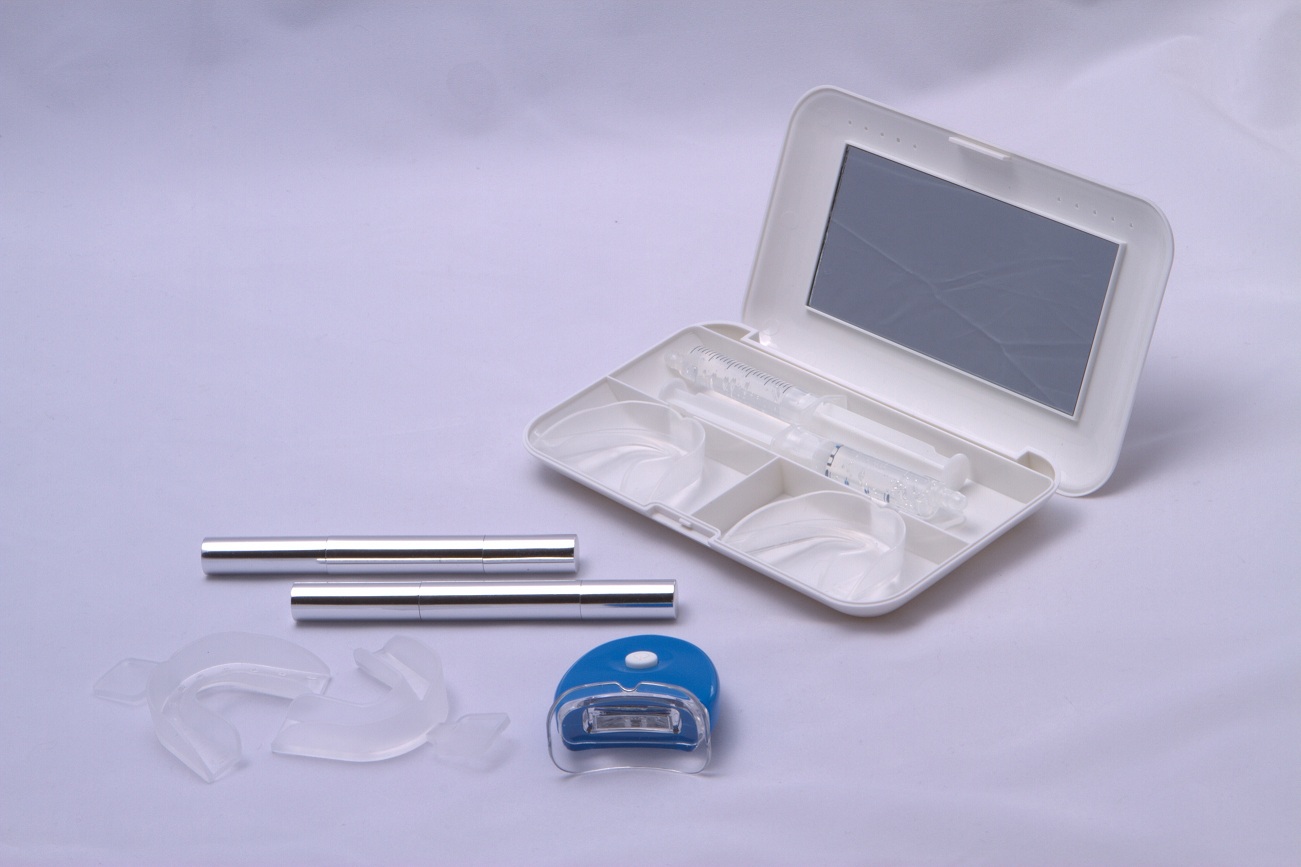
One way to keep smiles looking sharp without going to a dental office is to use an at- home teeth-whitening kit. At-home kits give an advantage to people with healthy teeth looking to enhance their smiles without having to schedule an appointment or hang around a dentist’s office. Over-the-counter at-home kits run between $20 to $100.
Store-bought at-home kits include whitening toothpaste, strips, or gels that may help with mild stains or spots. An at-home kit supplied by a dentist might be better suited to treat heavier stains. Buyers should be aware that the results can vary widely from product to product, and so can the cost. Many of the products on the market can also be messy or difficult to use correctly.
Despite their relative convenience, these at-home whitening kits can also have adverse side effects that include gum irritation and an increased tooth sensitivity. Fortunately, with most patients, these conditions often go away over time as teeth adjust to the whitening procedure.
Patients should also be cautious about a possible allergic reaction to peroxide. And the products shouldn’t be used by people with braces, excessive cavities, exposed roots, or badly worn tooth enamel.
Another caution to using at-home kits is overuse, either by using them too frequently or for the wrong amount of time.
At-home teeth-whitening can be inexpensive and convenient, but patients must be aware of the potential drawbacks, and of results that can’t be guaranteed.
Professional Whitening
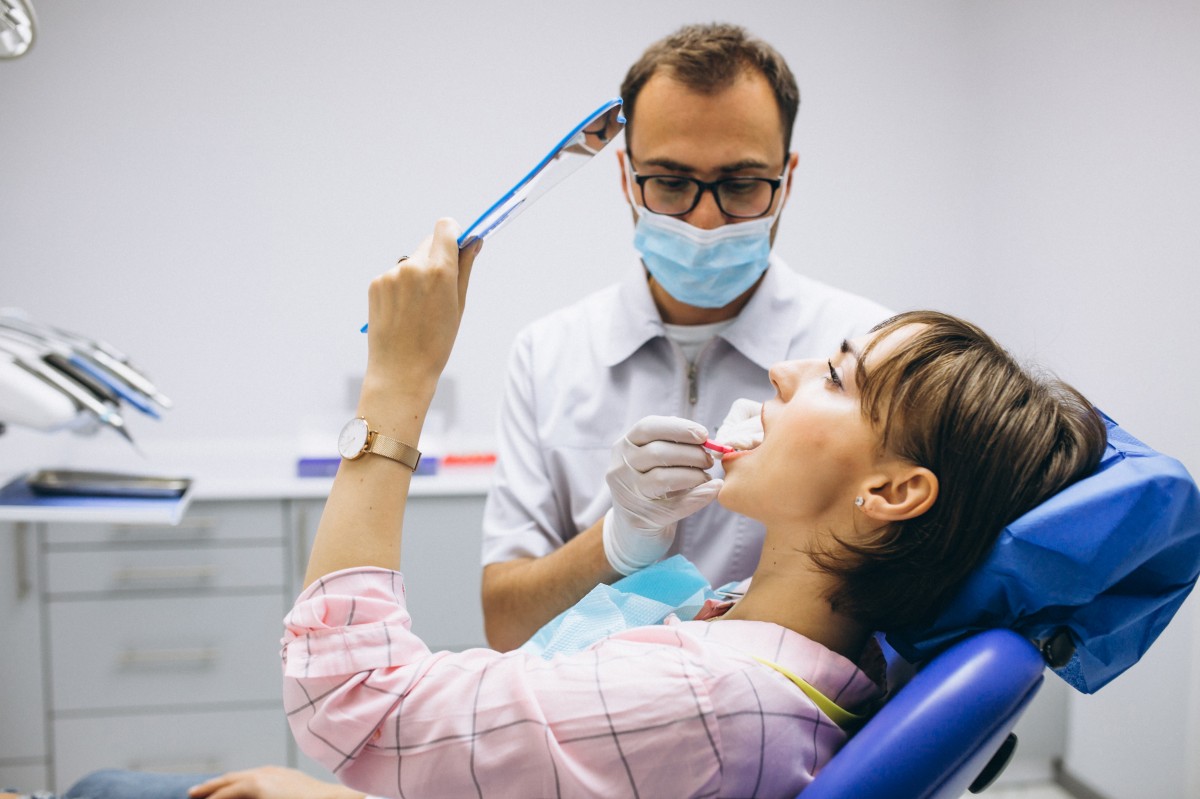
Professional whitening of teeth occurs at a dental office, rather than at home. It takes a shorter amount of time but can cost more than at-home kits. Professional whitening in a dental office costs about $650 per visit, while at-home whitening kits, provided by a dentist, can cost between $100 to $400 each.
Used by dentists to treat more severe stains, professional whitening uses a hydrogen peroxide-based bleaching gel. This is a much stronger bleaching agent than what is used in over-the-counter products. This means that teeth can become brighter, faster.
Because it is administered by a professional, there are fewer worries about damage to teeth. Incorrect use of whitening products at home can cause gingivitis, tooth erosion, and damage to the pulp of the teeth.
With professional teeth-whitening, dentists can watch the changes in color to make sure the treated teeth all have the same amount of shading and even whitening.
What About Laser Whitening for Crowns?
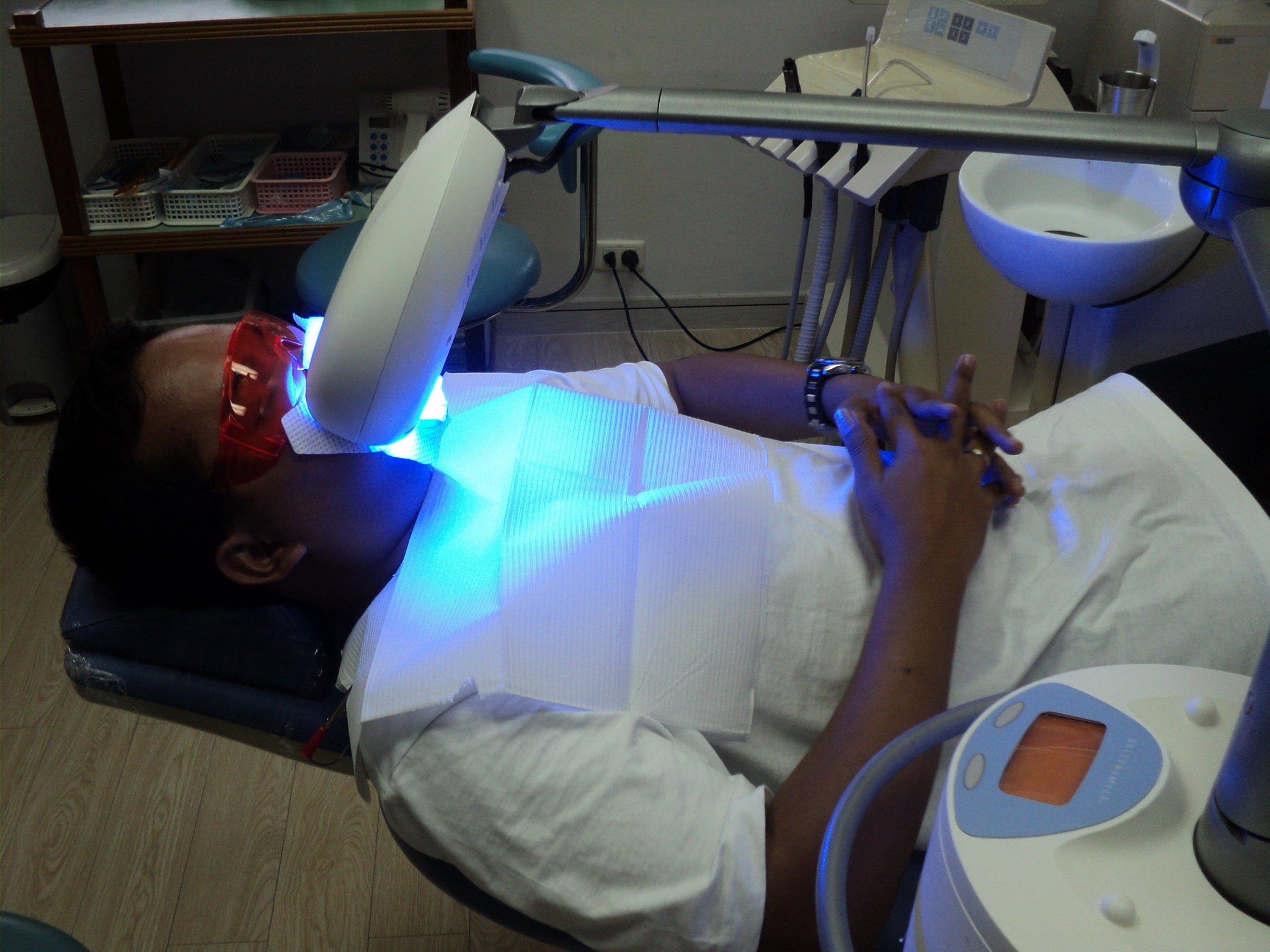
In recent years, advances in professional teeth-whitening have made the process more efficient, thanks to the use of lasers. Also known as power whitening, this one-hour procedure involves placing a dental guard over gums and then applying a bleaching agent directly onto teeth. Next, lasers precisely scan the teeth, causing a chemical reaction to be triggered that hastens whitening.
Once treated, the power-whitened teeth should remain glossy for several years, assuming there is no staining from excessive smoking or the use of liquids that can stain teeth, like red wine, tea, coffee, soda, or some juices.
While laser whitening is faster and often more effective than at-home and other professional whitening procedures, it is still designed only for treating natural teeth and will not work on crowns or other dental work.
Choosing between at-home whitening or professional whitening often comes down to time and money. Patients concerned about the cost of keeping a vibrant smile should speak with a dental professional about various options that are available.
Can Crowned Teeth Be Whitened?
When a regular filling won’t do the job, dentists will sometimes be able to use a partial crown to repair a tooth, instead of a full crown. Also known as inlays or onlays, partial crowns are cheaper than a full crown as they cover only a portion of a damaged tooth. They can be made of gold, porcelain, or a composite resin, just like full crowns.
Whether full or partial, the answer to the question “Can dental crowns can be whitened?” is the same. Inlays and onlays cannot be whitened. Whitening gels may polish and lighten the natural part of the tooth but will not change the color where the partial crown has been applied.
Getting Your Crown (or Replacing It) After Whitening
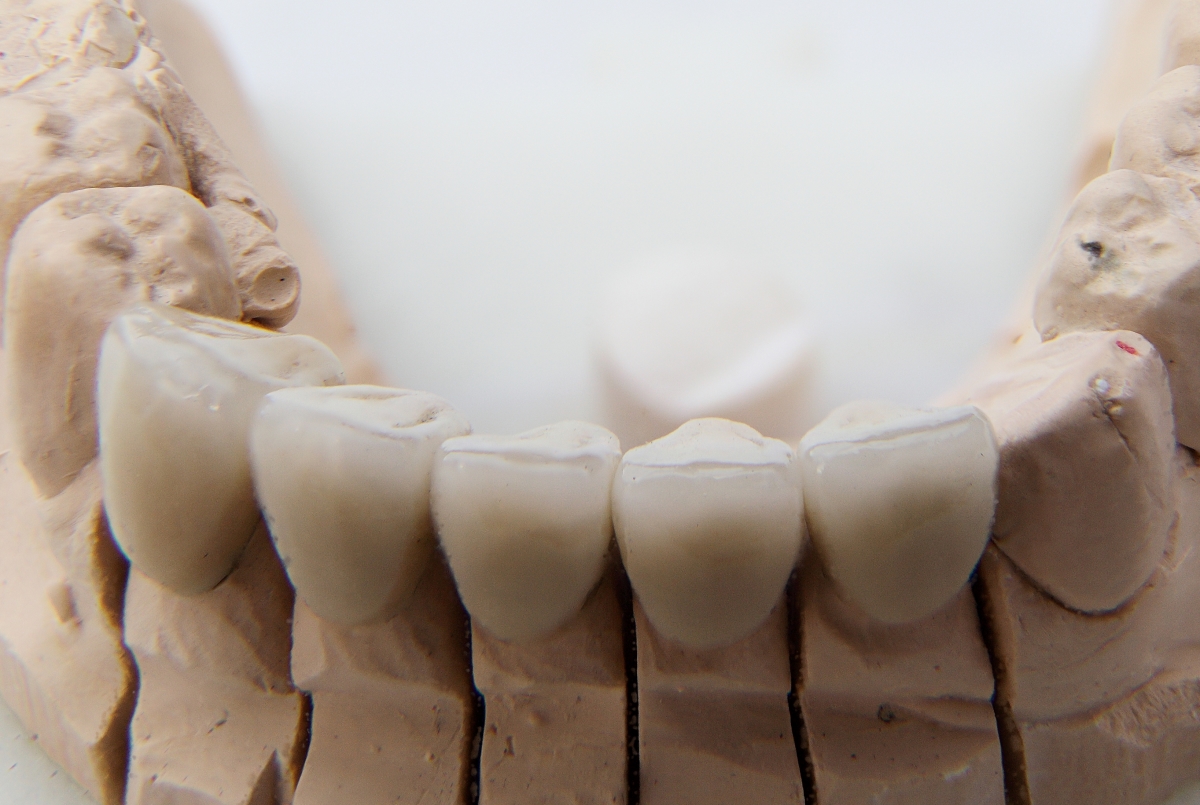
Having teeth whitened before getting a new crown put in is a smart move. In doing this, patients will have dental crowns that match whitened teeth.
Unfortunately, this isn’t always possible. Root canal procedures, in which most crowns are placed, are quite often done in an emergency. There may not be time to have teeth whitened first. Also, teeth-whitening is not recommended for damaged teeth. A tooth in need of a root canal is not a healthy tooth. Whitening at that point could cause unnecessary pain and additional damage.
If a patient knows they will want their teeth whitened in the near future, they can discuss it before the root canal procedure. The dentist can make sure that the crown is made a few shades lighter than the patient’s other teeth. This way, once the procedure is done, the natural teeth can be lightened until they match the crown.
Another option is to have a crown replaced to match the rest of the teeth. If it is time for a new crown anyway, this could be a good way to get the colors to match. But if there is nothing wrong with the crown but its color, a patient needs to consider if it is worth the expense and discomfort to go through the procedure purely for aesthetic reasons.
Finding a Local Expert in Dental Crowns
When it comes to finding an affordable provider for dental crowns (and services like teeth-whitening), it is important to consider finding someone you yourself are comfortable with; having a good rapport with a dentist who can explain treatments and treatment options will alleviate much of the anxiety about getting a crown. Finding a dentist with a convenient location, pleasant office atmosphere, and the right payment and insurance options is also important. Consider referrals from family and friends or use our online search tool to find a dental professional in your area.


